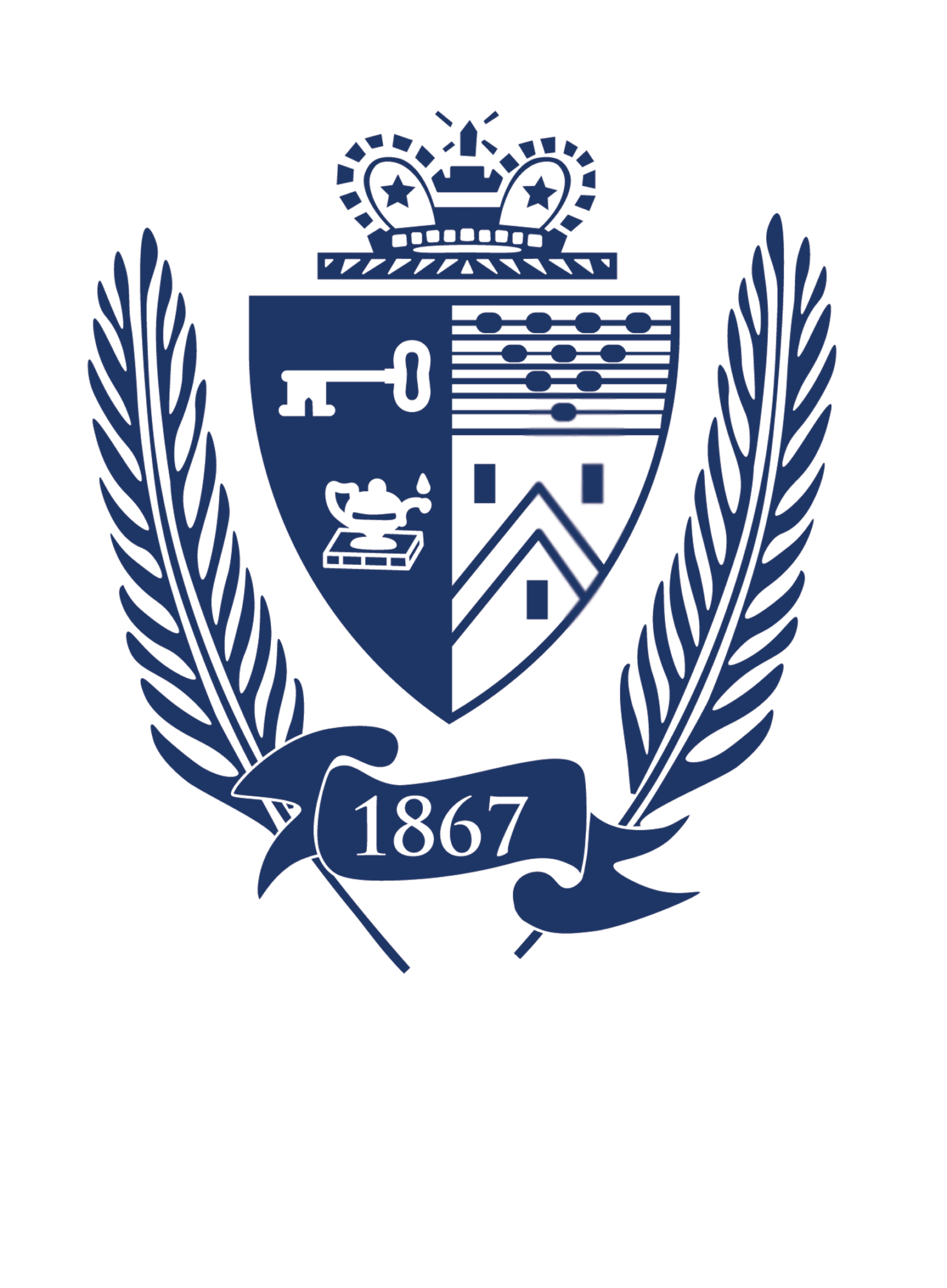Science at The Storm King School follows a physics-chemistry-biology sequence where students are not simply gaining knowledge but learning the processes of exploration, inquiry, and problem-solving. From there, Advanced Placement courses are offered in the core disciplines as well as Computer Science. Juniors and seniors have flexibility in their course choices to pursue their own interests in the study of science.
Our Courses
Middle School Science
The curriculum for the eighth grade science class draws from the collection of fields traditionally known as ‘Earth Science.’
READ MOREMiddle School Science
The curriculum for the eighth grade science class draws from the collection of fields traditionally known as ‘Earth Science.’ The topics range from geology, meteorology, and oceanography to astronomy. In this class, students explore the complexity of Earth’s structure and how its properties work together to sustain life.
Freshman Physics
In Freshman Physics, students are introduced to the fundamentals of physical science and the natural world.
READ MOREFreshman Physics
In Freshman Physics, students are introduced to the fundamentals of physical science and the natural world using age-appropriate mathematical tools. Topics include measurement, kinematics, forces, momentum, energy, electricity and magnetism, gravity, and more as time permits. In addition to learning about these areas of physics, students are guided to develop their skills in experimental design, analysis, and reflection, which lead to the construction of scientific models that ultimately allow students to make predictions and develop a more nuanced understanding of the natural phenomena.
Chemistry
Chemistry is the study of matter, energy, and their interactions. This course covers chemistry’s basic principles.
READ MOREChemistry
Chemistry is the study of matter, energy, and their interactions. This course covers chemistry’s basic principles, including atomic theory, the periodic table, chemical reactions, chemical quantities, chemical names with formulas, stoichiometry, and ionic/covalent bonding. This course is structured to develop critical thinking as well as independent and group problem-solving skills. Laboratory safety and techniques are emphasized in all experimental activities.
Honors Chemistry
Honors Chemistry covers the same material as regular Chemistry but with the expectation that the student completes lab activities.
READ MOREHonors Chemistry
Honors Chemistry covers the same material as regular Chemistry but with the expectation that the student completes lab activities and homework assignments with a higher level of sophistication and comprehension.
Advanced Chemistry
Advanced Chemistry is a rigorous college preparatory course designed to prepare students who wish to take the AP Exam.
READ MOREAdvanced Chemistry
Advanced Chemistry is a rigorous college preparatory course designed to prepare students who wish to take the AP Exam at the end of the year. Student’s taking this course will advance their understanding of the general chemistry course typically taken during sophomore year. This course emphasizes atomic theory, the periodic table, bonding, molecular structure, gas laws, kinetic molecular theory, stoichiometry, electrochemistry, properties of solutions, acids and bases, equilibrium, reaction rates, thermodynamics, and nuclear and organic chemistry. Students should expect a highly demanding schedule of homework assignments, and those choosing to take the AP Exam are advised that they will need to set aside time for independent review.
Environmental Science
This course seeks to investigate the science behind the significant environmental issues of today.
READ MOREEnvironmental Science
This course seeks to investigate the science behind the significant environmental issues of today. Students develop a comprehensive overview of Earth’s various independent systems and how they interact with each other. Using an ‘Earth systems’ approach, students begin to recognize society and the environment as an interrelated system. They investigate current issues, explore realistic solutions, and ultimately gain a greater understanding of the environmental factors that affect our world.
Physics
The scientific field of physics has been central in the development of modern civilization, from everyday conveniences to advanced technologies.
READ MOREPhysics
The scientific field of physics has been central in the development of modern civilization, from everyday conveniences to advanced technologies to our understanding of our place in the Universe, and it will continue to lead us to discoveries yet to be imagined. This physics course follows a modeling approach in which the students actively participate in the process of scientific inquiry. Major concepts are introduced with paradigm labs in which students measure observable quantities, extract key relationships between the variables, and develop models to understand the observed phenomena. Multiple represenations—schematic, graphical, and mathematical—are developed, which together define the models. Students regularly work in teams, and both present and defend their work amongst each other. The curriculum includes kinematics, dynamics, energy, and other topics as time permits.
Biology
Biology is the study of life itself. It has become the preeminent science of the 21st century.
READ MOREBiology
Biology is the study of life itself. It has become the preeminent science of the 21st century. Advances in genetics and biotechnology have begun to allow humans to manipulate life to suit our needs. In this course, students explore the characteristics that all life has in common; how life is passed down from generation to generation; how species change over time; and how life interacts with the environment. Learning about life on Earth, past and present, students begin to imagine how we can shape its destiny.
Honors Biology
Honors Biology covers the same material as regular Biology with some additional topics.
READ MOREHonors Biology
Honors Biology covers the same material as regular Biology with some additional topics and with the expectation that students complete lab activities and homework assignments with a higher level of sophistication and comprehension. Honors Biology is prerequisite for AP Biology.
AP Biology
AP Biology prepares students to carry out scientific investigations and develop advanced inquiry and reasoning skills.
READ MOREAP Biology
AP Biology prepares students to carry out scientific investigations and develop advanced inquiry and reasoning skills. The course covers the “big ideas” of evolution, energy, information, and interaction within the living world. Students explore experimental design and data collection and analysis while conducting laboratory exercises throughout the semester. AP Biology is equivalent to a two-semester college introductory biology course. The pacing will be faster and less flexible than regular courses in order to cover all the required content. Students should expect a highly demanding schedule of homework assignments. Prerequisite: Honors Biology
AP Computer Science A
AP Computer Science A is a college prep course for potential computer science majors.
READ MOREAP Computer Science A
AP Computer Science A is a college prep course for potential computer science majors and a foundation course for students planning to study other technical fields such as engineering, physics, chemistry, and many other fields that may require an awareness of programming concepts. This course emphasizes the application of standard Java programming methodology, and object-oriented analysis and design practices. Students will become adept at applying the concepts of inheritance, encapsulation, abstraction, and polymorphism for solving real-world problems in computer science. A detailed examination of several case study programs provides an introduction to Java building blocks and provides a solid foundation for success in the AP ComputervScience Exam. AP Computer Science A is a highly demanding course recommended only for students with prior programming experience and/or strong math and logic skills. Students should expect a highly demanding schedule of homework assignments and projects. Students must have a reasonably up-to-date laptop computer (Windows or Mac) that can be brought to class every day.
AP Computer Science Principles
AP Computer Science Principles introduces students to the central ideas of computer science.
READ MOREAP Computer Science Principles
AP Computer Science Principles introduces students to the central ideas of computer science, instilling the ideas and practices of computational thinking and inviting students to understand how computing changes the world. The curriculum is structured around several major components: (1) digital information, (2) the Internet, (3) app design and programming, (3) data, and (4) cybersecurity and global impacts. In addition to the AP exam at the end of the year, students must submit an original computer application designed and coded by the student. AP Computer Science Principles is complementary to AP Computer Science A (CSA); students may elect to take both courses in either order, although CSA is more technically challenging and is recommended only for students with prior programming experience and strong math skills. Students must have access to a laptop computer (Windows or Mac) for classwork and homework assignments for both courses.
AP Physics C
The science of physics and astronomy has played a profound role in human civilization from the ancient Greeks to modern times.
READ MOREAP Physics C
The science of physics and astronomy has played a profound role in human civilization from the ancient Greeks to modern times. Physics is at the heart of virtually all modern technology and provides the foundation for our understanding of the world. The goals of this course are (1) to develop an in-depth understanding of the principles and mathematics of classical physics mechanics in preparation for the AP Physics C exam and (2) to practice experimental data acquisition, analysis, and reporting using digital sensors and computer-based analysis tools. Calculus will be used throughout the course to understand concepts and prepare students for college-level work in physics and engineering. Students should expect a highly demanding schedule of homework assignments.
Computer Science Principles
Computer Science Principles introduces students to the central ideas of computer science.
READ MOREComputer Science Principles
Computer Science Principles introduces students to the central ideas of computer science, instilling the ideas and practices of computational thinking and inviting students to understand how computing changes the world. The curriculum is structured around several major components: (1) digital information, (2) the Internet, (3) app design and programming, (3) data, and (4) cybersecurity and global impacts. This class or the equivalent is a prerequisite for AP Computer Science A. Students must have access to a laptop computer (Windows or Mac) that can be brought to class every day.
Astronomy
This introductory astronomy course will survey topics such as the Solar System, stellar life cycles, galaxies, observational techniques, historical perspectives.
READ MOREAstronomy
This introductory astronomy course will survey topics such as the Solar System, stellar life cycles, galaxies, observational techniques, historical perspectives, and contemporary cosmological discoveries, providing students with a comprehensive understanding of celestial phenomena. The curriculum combines theoretical concepts with practical applications, emphasizing the development of observational skills and critical thinking. By the conclusion of the course, students will have acquired a foundational knowledge of astronomy, fostering an awareness of and wonder at the complexities inherent in our study of the cosmos.
Meet the Faculty







